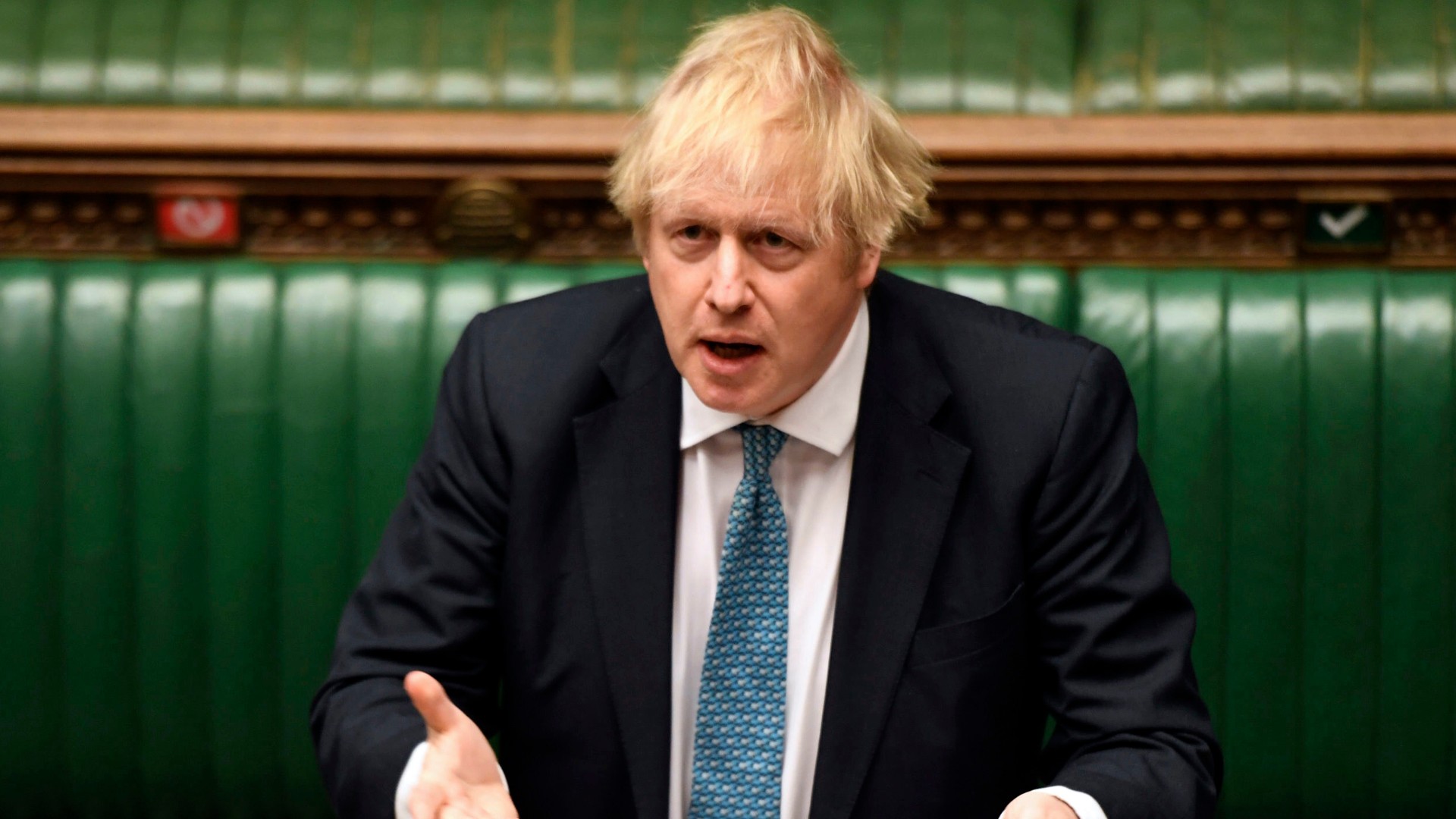
Editor's note: Freddie Reidy is a freelance writer based in London. He studied history and history of art at the University of Kent, Canterbury, specializing in Russian history and international politics. The article reflects the author's opinions and not necessarily the views of CGTN.
Around the world nations await the prospect of easing COVID-19 protective restrictions. But as the United Kingdom lifts its own pandemic measures on July 19, serious questions are being raised over the wisdom of such a policy change at a time of rising infections. Is the UK therefore pursuing a herd immunity by mass infection?
In an open letter to The Lancet medical magazine signed by over 1,200 scientists, the authors condemned the government's strategy as an "unscientific and unethical" reopening policy and "herd immunity by mass infection."
The strong tone of the letter is reflective of nationwide caution at the prospect of a full reopening. In the last seven days over half a million people have been asked to self-isolate as cases of the Delta variant rapidly spread across the country.
Wary of the pace of the easing of restrictions and cautious over the effectiveness of what the government has referred to as a step away from government dictate and toward "personal responsibility," many transport authorities are insisting that mask-wearing and social distancing measures continue. Many companies have also elected to encourage similar measures with Sainsbury's and Tesco supermarkets encouraging mask wearing while JP Morgan announced that staff would continue to be encouraged to wear a mask while moving around their Canary Wharf offices.
Fuelling and vindicating such caution, the newly appointed health secretary Sajid Javid was diagnosed with the virus over the weekend with Prime Minister Boris Johnson and Chancellor Rishi Sunak also forced to isolate.
Far from the forecasted euphoria which was expected to herald "Freedom Day" and the easing of restrictions, UK newspapers ran headlines such as "Freedumb Day" and referring to a "Pingdemic" as the number of alerts from the National Health Service's test and trace app continue to soar.
However, it is unlikely that a herd immunity is the strategy that the government wishes to employ, for one simple reason: it isn't really possible.

The GAP store on Oxford Street, London, UK, June 10, 2021. /CFP
The GAP store on Oxford Street, London, UK, June 10, 2021. /CFP
Speaking to inews, Professor Paul Hunter of the University of East Anglia pointed to the statistical futility in attempting to achieve such a goal.
"The effectiveness of the AstraZeneca vaccine against clinical infection with delta is about 88 percent and likely effectiveness against asymptomatic infection somewhat less. We do not know the value for all infection for the delta variant but it was 67 per cent for infections in the phase 3 trial pre-Delta… Therefore to achieve herd immunity 88 percent would need to be immune – with a vaccine that is only 70 percent effective you would need to immunise 125 percent of the UK population."
Despite the rise in cases though, hospitalisations and deaths are still at a low rate. Professor Hunter does however point to not needing to actually achieve a herd immunity as the vaccines "substantially reduce the danger of getting a severe disease on first infection... Covid is here to stay but not as we know it, more like the other coronaviruses which are a cause of the common cold."
With an uneven global vaccination policy it likely that we will continue to see new variants emerging. It is this reality which perhaps lies at the heart of the government's rationale.
Economies cannot stay shuttered indefinitely, with treasuries starved of their tax revenue. Populations are also likely to become restless at the prospect of continued curbs with the risk of civil disobedience ever-present.
This therefore could be argued to be the calculation No. 10 is making, a decision designed to protect the economy and keep the option of future lockdowns available for later in the year should a new variant emerge which is more resistant to the vaccines.
Adherence to this policy will prove challenging though. Just as the UK population expresses domestic reservations, other nations have been highly sceptical too with Germany characterising the policy change a "highly risky experiment."
It is a reality that the UK and other nations are unlikely to achieve zero COVID-19 fatalities and that government and scientific advisors will have to come to some conclusions over what is an acceptable number of fatalities, a decision that no leader wishes to make.
(If you want to contribute and have specific expertise, please contact us at opinions@cgtn.com.)

